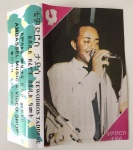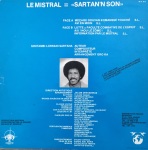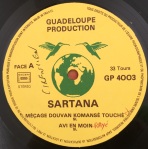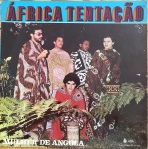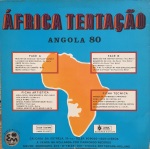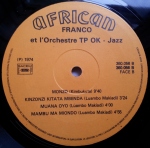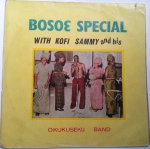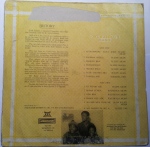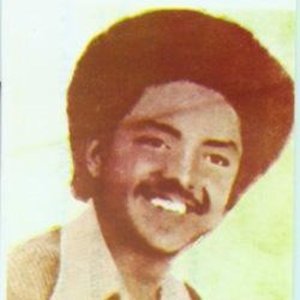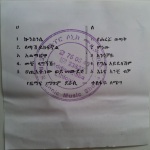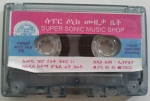Latest mini mix for late summer parties.
More from Somalia
Another mix of older and nearly lost sounds from Somalia.
Spiritual Voice

Tewodros Tadesse
Today’s post focus on an Ethiopian great – Tewodros Taddese. He has recorded music for over 30 years, starting singing in church in his native Addis Ababa, moving on to cover the likes of Muluken Melesse.
His first album had an immediate impact making him a household name in Ethiopia. I picked up this tape in Addis a couple of years ago and it has been a favourite ever since. It’s a great album overall with several strong tracks; none more so than the face-melting second track on the B side!
Side A:
1
2
3
4
Side B:
1
2
3
4
5
Across the Ocean

For this post I have decided to focus on the Caribbean, and more particularly Guadalupe. The music of this island in the French Antilles is rich and varied with folkloric music such as Biguine vidé, Gwo Ka as well as more popular music with roots in Haitian Kompas, including Cadence and Zouk.
I first came across Sartana Sinitambi when Sofrito featured Information Par Le Mistral on their International Soundclash LP. Sartana started off recording music in the 80s with his band Mistral and went on to release several Zouk hits in the latter part of the 80s and early 90s.
Today’s track is from his 1980 LP, Mecage Douvan Komansse Touche. It’s a real party tune featuring Sartana’s hypnotic vocals inter-playing with the backing singers. The track shifts dramatically midway through. Play loud on hot summer nights!
Lutte = Faculte Combative De L’Esprit
Record details:
Sartana Et Son Groupe Mistral – Mecage Douvan Komansse Touche – Sartan’n Son (GP 4003) – 1980
Arrival in Angola
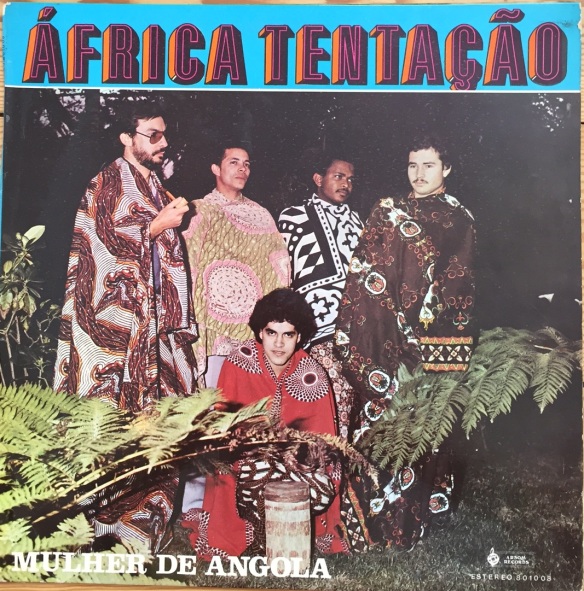 Akwasi Beats is back again after a long hiatus. What better place to start than in Angola. Analog Africa have released a few wonderful compilations that are highly recommended tracking down for an entry point into the sounds of Lusophone Africa.
Akwasi Beats is back again after a long hiatus. What better place to start than in Angola. Analog Africa have released a few wonderful compilations that are highly recommended tracking down for an entry point into the sounds of Lusophone Africa.
África Tentação (African Temptation) was set up in 1977 by José Paulo Serrao and Joka Serrao. The group’s aim was to introduce a Portuguese audience to the music of Angola; more particularly the sounds of Bailundo, a municipality in the centre of the country. The band were made up of Henrique (drums), Mario Bernardo “Sofia” (Voice, Percussion and Trumpet), Freitas (drums), Joe Mitchell (Bass), Joka (rhythm guitar), Zé Paulo (guitar), Botto (keyboard), Jaime Inácio “Bolinhas” (Congas), Nelo Carvalho (vocals and guitar), Nelson (guitar) and Nando Quental (Vocals).
The band recorded 5 LPs from the late 1970s to early 1980s:
Ufeku Ndalota La Do Si Discos (780320) 1978
Angola ’79 La Do Si Discos (790532) 1979
Mulher De Angola Arsom Records (801008) 1980
Quando Fui A Benguela Arsom Records (830423) 1983
Kissange -Saudade Negra Arsom Records (860633) 1986
The two tracks I have selected are from their 1980 release Mulher de Angola
Zanzala
Maria Nao Tem Vesido
Update – The translation to Maria is as follows:
More Somali Greatness!
Continuing the Somali vibes here is another mix that is sure to get the blood pumping and the body moving!
Play loud and invite the neighbours around!
Somali Mix Tape
More Than OK

It has been a long time since the last post, with time seemingly at a premium at the moment. Today’s selection may seem like a bit of an obvious choice of a band and a record but despite my love of the obscure and unknown it is definitely necessary to cover the biggest, in both popularity and personnel over their life, as well as most prolific bands in Africa.
OK Jazz was formed in 1956 and lasted 37 years before being disbanded in 1993, giving the Rolling Stones a run for their money in terms of longevity. The band’s history and changes in personnel are complex, reading like a who’s who of Congolese musicians recording hundreds of records over their lifetime. Arguably the most well known member and eventual band leader was guitarist François Luambo Makiadi, known as Franco. Franco’s period of assuming leadership of the band in the late 1960’s that transformed it to all conquering can be read about on the meticulously written and researched World Service, here.
Soukous, or Rumba, from the French word secousse, to shake, is one of the most popular styles of music in Africa, spreading from Kinshasa, in the Belgian Congo to Nairobi in Kenya, where it is known as Lingala after the dialect the songs where sung. African Rumba is said to originated when Cuban songs were played on the national radio station in Kinshasa in the 1940’s and 50’s. The typical Cuban style horns were played on the guitar and the lyrics were sung in French and Lingala by early Congolese bands and musicians like Papa Wenga.
By the 1960’s and 70’s Soukous was at the height of its popularity and Franco and TPOK Jazz were in full swing. Such was their popularity they split into two groups, with one remaining in Kinshasa playing local clubs, the other touring Africa, Europe and America. Here they can be seen playing Kinsiona in 1987 in Utrecht, Netherlands.
Today’s selections come from a 1974 LP and show the range of the band, and the power of Franco’s voice framed with blaring horns.
Kinsiona
Mambu Ma Miondo
Record details:
Franco et L’Orchestre TP OK Jazz – Editions Populaires (1974) – African (360.056)
Take Two!
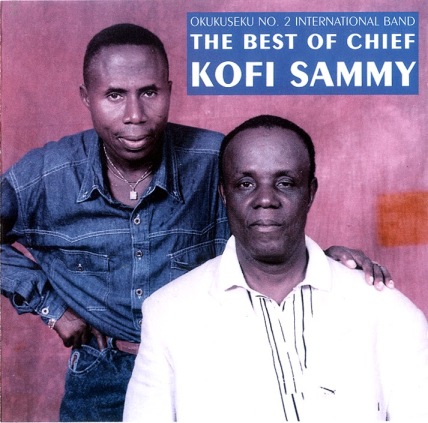
Kofi Sammy & Walter Proof
Back on familiar territory with some more Ghanaian Highlife from blog staple, Kofi Sammy and Okukuseku.
According to the sleeve notes the band was formed by Sammy along with Walter Proof, an actor and former member of E. K. Nyami’s No. 1 Band. They hit a hurdle when they realised they had no instruments to play! Thankfully, Proof’s past as an actor came in handy and they were able to borrow instruments from the Ghana Film Corporation and start recording.
Today’s post is from their second LP; it appears they recorded over 60 singles and several albums making them one of the most prolific bands in Ghana at the time. Today’s selection is a medley of their songs on side 1 of the LP. Highlife bands appeared to do this regularly perhaps to showcase their ability and range as musicians.
Medley
Record Details:
Kofi Sammy and his Okukuseku Band – Bosoe Special (197?) – Ambassador (LPAM 004)
Drowned in Sound
Today has been a washout weather wise. I’m not complaining though as all afternoon I’ve been listening to this tape dug in Ethiopia several months ago and I must say, IT IS BLOWING MY MIND!! Not being able to read Amharic, means that I have no idea who the artist is or the names of any of the tracks. The recording is terrible with drops in volume on some songs, tape warble, constant hiss and the last track is cut out halfway through, but I still love it because the quality of the music shines through. Please if anyone can give me any information on this artist, the album or the track names, I would be very grateful. I’ve included the whole tape – it definitely warrants being heard in its entirety. Right, back to listening.
Update: Song writer – Tesfaye Lemesa. Image of Artist on cover – Muluken Melesse. Side A. 2. Feels sad when i can not find you 3. Almazewae (Song for a lady named Almaz) 4. When can i meet you ? 5. Is it it a sin to love ? Side B 1. Youth of Harar 2. Why 4. Not my personal ownership 5. Me & you only.
Thanks to Seyum Berhe for the information.
Side 1:
Track 1
Track 2
Track 3
Track 4
Track 5 Side 2:
Track 1
Track 2
Track 3
Track 4
Track 5

